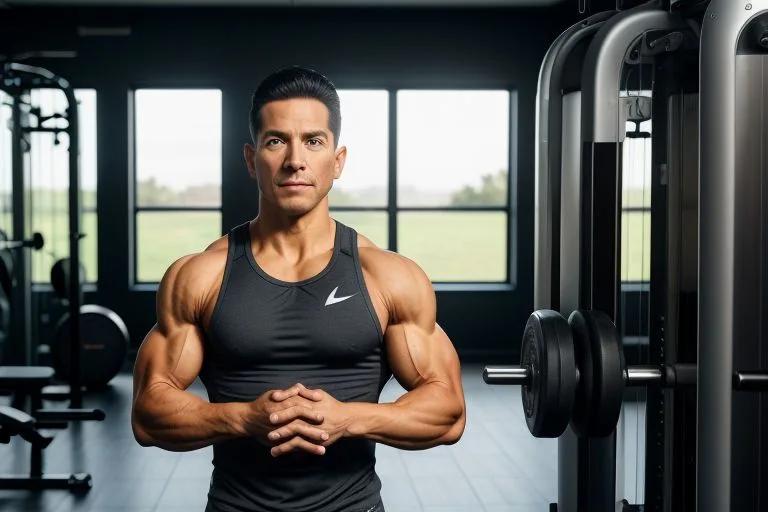
5 Key Habits of a Successful Fitness and Nutrition Coach
Introduction
Becoming a successful fitness and nutrition coach requires more than just knowledge of exercise and nutrition. It requires developing a set of good habits that can help you build strong relationships with clients, stay current with industry trends, and prioritize sustainable practices. In this article, we'll explore the five key habits that every successful fitness and nutrition coach should cultivate.

Habit 1: Staying Up-to-Date with Industry Trends
The fitness and nutrition industry is constantly evolving, with new research and developments emerging all the time. To stay ahead of the curve, successful coaches make a habit of staying up-to-date with the latest trends and best practices. This might involve attending industry conferences, participating in online forums, or networking with other professionals.
One effective way to stay current is to read industry publications and scientific journals regularly. This can help you stay abreast of the latest research and trends, and ensure that you're providing clients with the most accurate and up-to-date information.

Another important aspect of staying up-to-date is continuing education. As a coach, you should always be looking for opportunities to learn new skills and techniques. This might involve taking courses or certifications in related fields, such as strength training or sports nutrition, or attending workshops or webinars on new training methods or nutrition strategies.
Habit 2: Prioritizing Client Needs
A successful fitness and nutrition coach always puts the client's needs first. This means taking the time to build a strong rapport with clients, establishing clear goals and expectations, and tailoring programs to meet their individual needs.
To build a strong relationship with clients, coaches must be able to communicate effectively and listen actively. This can involve asking questions to get to know clients on a personal level, providing regular feedback and encouragement, and being available to answer questions and address concerns.
Another important aspect of prioritizing client needs is recognizing that not every client is the same. Each client will have different goals, preferences, and limitations, and it's important to tailor programs to meet their individual needs. This might involve modifying exercises to accommodate injuries or health conditions, or adjusting nutrition plans to fit their dietary preferences.
Habit 3: Communicating Effectively
Effective communication is essential for building trust and accountability with clients. Coaches must be able to communicate clearly and concisely, using plain language that clients can understand.
This might involve simplifying complex concepts, avoiding jargon, and breaking down information into manageable chunks. Active listening is also critical, as it helps coaches understand clients' needs and concerns, and ensures that they are providing tailored solutions.

Another important aspect of communication is providing regular feedback and encouragement. This can help clients stay motivated and on track with their goals, and can also help coaches identify areas where clients may need additional support or guidance.
Habit 4: Emphasizing Sustainable Practices
A successful coach understands that quick fixes and fad diets are not sustainable in the long term. Instead, they focus on promoting healthy, sustainable practices that can be integrated into clients' daily lives.
This might involve emphasizing gradual lifestyle changes, such as incorporating more whole foods into meals, increasing physical activity gradually, or developing stress-management techniques. Holistic wellness is also important, as coaches recognize that physical health is intimately connected to mental, emotional, and social well-being.
Another important aspect of emphasizing sustainable practices is recognizing that every client is different. What works for one client may not work for another, and it's important to tailor programs to fit their individual needs and lifestyles. This might involve providing meal plans or workout routines that are easy to follow and fit into busy schedules, or suggesting stress-management techniques that can be integrated into daily routines.
Habit 5: Leading by Example
One of the most effective ways to inspire clients is to lead by example. Successful coaches understand that they must embody the values and principles they promote to their clients.
This might involve following a healthy diet and exercise routine, prioritizing self-care and stress management, and modeling positive behaviors and attitudes. It also involves being honest and transparent with clients, and acknowledging that coaches are not perfect and make mistakes just like anyone else.

Leading by example can help build trust and credibility with clients, and can inspire them to make positive changes in their own lives. It also demonstrates that coaches are committed to the values and principles they promote and that they believe in the power of healthy, sustainable living.
In conclusion, becoming a successful fitness and nutrition coach requires more than just knowledge of exercise and nutrition. It requires developing a set of good habits that can help you build strong relationships with clients, stay current with industry trends, prioritize client needs, communicate effectively, emphasize sustainable practices, and lead by example.
By cultivating these habits, coaches can build a thriving practice that inspires clients to make positive changes in their lives. They can also contribute to the growth and development of the fitness and nutrition industry, by promoting evidence-based practices and innovative solutions.
Whether you're just starting out as a coach, or looking to take your practice to the next level, cultivating these five habits can help you achieve success and make a lasting impact on the lives of your clients.



